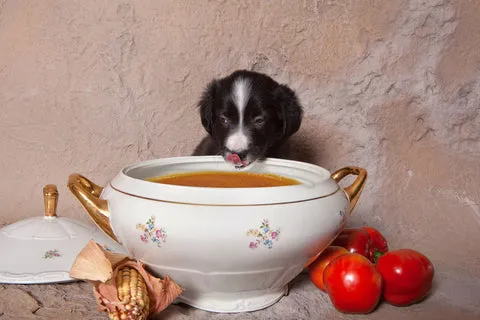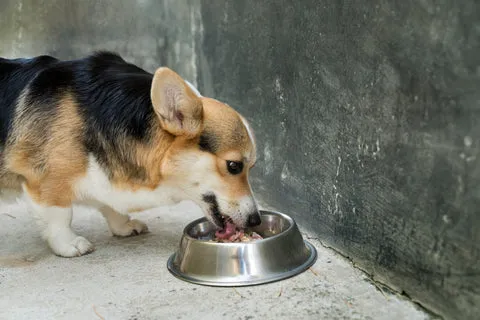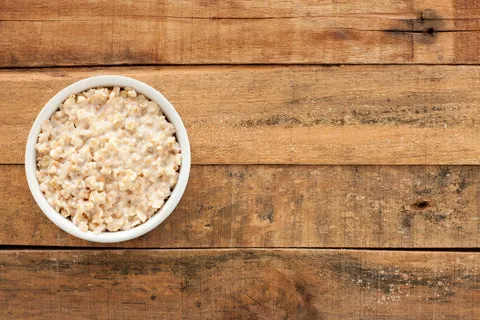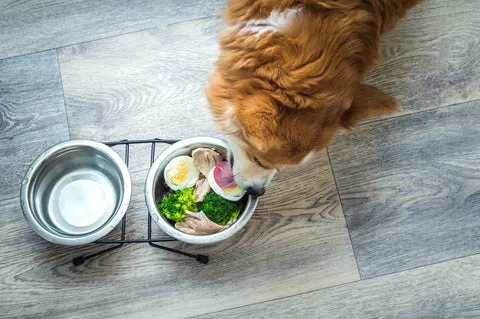When our canine companions aren’t feeling their best, a sudden loss of appetite or an upset stomach can be distressing for any pet owner. Just like humans, dogs often go off their regular food when they’re under the weather, making it challenging to know how to provide the right nutrition to aid their recovery. Providing easily digestible, nutritious food is crucial to boost their energy and support a speedy bounce back. This article, developed by the experts at Dog Care Story, offers a detailed guide on What Foods Can Dogs Eat With Upset Stomach, ensuring your furry friend gets the gentle care they need.
Understanding Your Dog’s Upset Stomach
An upset stomach in dogs, medically known as gastroenteritis, can manifest as vomiting, diarrhea, lethargy, or a general lack of enthusiasm for food. Common causes range from dietary indiscretion (eating something they shouldn’t) to sudden changes in diet, stress, parasites, bacterial infections, or more serious underlying health conditions. While some mild cases can be managed at home with a bland diet, it’s essential to recognize when professional help is needed. If your dog exhibits severe symptoms, persistent vomiting or diarrhea, signs of pain, or extreme lethargy, always consult your veterinarian immediately for proper diagnosis and treatment. For a broader understanding of general canine nutrition, consider exploring what people food can dogs eat to ensure you’re making informed dietary choices for your pet’s overall health.
Best Bland Diet Foods for Dogs with Upset Stomachs
When your dog has an upset stomach, the goal is to feed them a bland, easily digestible diet that soothes their digestive system without adding further irritation. Here are ten vet-recommended options, along with preparation tips:
1. Boiled White Meat (Chicken or Turkey)
 Boiled chicken breast, lean protein for a dog with an upset stomach
Boiled chicken breast, lean protein for a dog with an upset stomach
Plain, boiled white meat like chicken or turkey is an excellent choice for a sick dog because it’s lean, easy to digest, and a good source of protein without excessive fat. Opt for chicken or turkey breast, as these are the leanest parts.
Preparation:
- Rinse the meat thoroughly under cold water.
- Remove all skin and bones to prevent choking hazards and make it easier to digest.
- Place the meat in a pot, cover it with water, bring it to a boil, then reduce heat and simmer for 15-20 minutes until thoroughly cooked.
- Drain the water and cut the meat into small, bite-sized pieces.
- Allow to cool completely before serving, either on its own or mixed with white rice.
2. White Rice
A staple in many dog foods, white rice is incredibly bland and gentle on a dog’s sensitive stomach, making it an ideal companion for boiled chicken or turkey. While brown rice offers more nutrients, its higher fiber content can be harder for an upset digestive system to handle. White rice, being simpler, is often preferred for sick dogs. It can also help bind loose stools, which is beneficial if your dog is experiencing diarrhea.
 Golden Retriever looking at a bowl of white rice and chicken, a common bland meal for dogs with an upset stomach
Golden Retriever looking at a bowl of white rice and chicken, a common bland meal for dogs with an upset stomach
Preparation:
- Rinse the rice under cold water to remove excess starch.
- In a large pot, combine one part rice with two parts water.
- Bring to a boil, then reduce heat to a simmer, cover, and cook on low heat for about 18 minutes, or until all water is absorbed. Avoid adding salt if your dog has a sensitive stomach, or only a very small pinch if absolutely necessary.
- Let it rest and cool, then fluff with a fork before serving.
3. Sweet Potatoes
Cooked, plain sweet potatoes are a nutrient powerhouse, rich in vitamins, antioxidants, and dietary fiber. They are gentle on the stomach and can help soothe the intestines, providing essential calcium, iron, and magnesium to support your dog’s recovery. This makes them a fantastic option when considering what foods can dogs eat with upset stomach for added nutrients.
 Steamed sweet potato chunks, soft and easy to digest for dogs
Steamed sweet potato chunks, soft and easy to digest for dogs
Preparation:
- Never feed raw sweet potatoes, as they are tough to digest.
- Peel the sweet potatoes, chop them into chunks, and boil until very soft.
- Drain the water and mash them for your dog.
- Serve once cooled.
4. Pumpkin
Similar to sweet potatoes, plain pumpkin is highly effective for an upset stomach. It’s packed with vitamins that boost the immune system and is rich in fiber, which helps regulate digestion whether your dog has diarrhea or mild constipation.
 Husky playfully smiling with a slice of pumpkin, a healthy dog treat
Husky playfully smiling with a slice of pumpkin, a healthy dog treat
Preparation:
- You can offer up to four tablespoons of plain, cooked pumpkin with their regular bland meal.
- Canned pumpkin is just as effective as fresh, provided it contains no added sugars, spices (like pumpkin pie spice), or other ingredients. Always read labels carefully to avoid harmful additives.
5. Homemade Bone Broth
Bone broth is incredibly nourishing for sick dogs, offering essential nutrients, minerals like sodium and potassium, and vital hydration. Its low carbohydrate content and gentle nature make it very easy to digest, which is perfect for an upset stomach. When choosing what foods can dogs eat with upset stomach, bone broth is a soothing liquid option.
 Puppy licking a bowl of bone broth, a hydrating and nutritious option
Puppy licking a bowl of bone broth, a hydrating and nutritious option
Preparation:
- Combine beef or pork marrow bones with chicken or turkey bones in a large pot.
- Cover the bones with a few inches of water and simmer on low heat for 20-24 hours.
- Strain the liquid to remove all bones and bone fragments.
- Serve the cooled liquid. Avoid using garlic or excessive salt, which can be harmful to dogs.
6. Baby Food
For puppies or small dogs struggling with an upset stomach, stage 2 meat-based baby foods (e.g., chicken, lamb, turkey) can be an effective feeding option. Their smooth texture makes them easy to chew and digest, helping to settle the stomach and manage diarrhea.
 Two doodle puppies sharing a bowl of baby food, easy for puppies to digest
Two doodle puppies sharing a bowl of baby food, easy for puppies to digest
Important Note: Always check ingredients carefully to ensure no additives are toxic to dogs, such as garlic or onion powder. When in doubt, consult your vet before introducing new foods, especially for very young puppies. For specific guidance on feeding human foods as a meal, you can learn more about what human food can dogs eat as a meal.
7. Fish
Fish is an excellent source of healthy fats (like Omega-3s) and vitamins, which can significantly boost your dog’s immune system and overall health during recovery. The strong, appealing smell of fish can also stimulate a sick dog’s appetite, encouraging them to eat when they’ve lost interest in other foods.
 Corgi happily eating fish from its bowl, a good source of healthy fats
Corgi happily eating fish from its bowl, a good source of healthy fats
Preparation:
- The best way to prepare fish for your dog is by poaching it.
- Place the fish in a pan of water, bring it to a boil, then reduce heat and simmer for 10-15 minutes until fully cooked.
- Carefully remove all bones and cut the fish into small, flakey pieces before serving.
8. Oatmeal
Plain, cooked oatmeal, made from rolled oats, can be very soothing for a dog’s upset stomach. Its high fiber content aids digestion and can help alleviate constipation, while its antioxidants may help reduce stomach inflammation.
 Bowl of plain cooked oatmeal on a wooden table, good for dog digestion
Bowl of plain cooked oatmeal on a wooden table, good for dog digestion
Important Note: While beneficial, oatmeal is rich in fiber, so moderation is key. Too much can sometimes exacerbate an upset stomach, so feed it sparingly. Always serve plain, without any added sugars, milk (lactose can upset dog stomachs), or artificial sweeteners.
9. Plain Yogurt
Plain, unsweetened yogurt, rich in probiotics, is an excellent choice for supporting gut health and aiding digestion. The beneficial bacteria can help rebalance your dog’s digestive system, which is particularly helpful if they have diarrhea or constipation. When considering diverse options for what foods can dogs eat with upset stomach, yogurt offers a unique probiotic boost.
 Puppy with white yogurt on its chin after eating, showing its enjoyment
Puppy with white yogurt on its chin after eating, showing its enjoyment
Preparation:
- Ensure the yogurt is plain, natural, and free of any added sugars, artificial sweeteners (especially xylitol, which is toxic to dogs), or fruit flavorings.
- It’s easily found in most grocery stores and can even be frozen into a cool treat.
10. Eggs
Provided your dog isn’t actively vomiting, eggs are a highly digestible and gentle food choice, providing a good source of protein and an energy boost. This is particularly useful if your dog is feeling lethargic post-illness.
 Dog eating scrambled eggs and vegetables from its bowl, a protein-rich meal
Dog eating scrambled eggs and vegetables from its bowl, a protein-rich meal
Preparation:
- The best ways to prepare eggs for a sick dog are scrambled (without butter, oil, or milk) or boiled.
- Avoid eggs entirely if your dog is actively vomiting, as the protein content might be too rich.
Long-Term Solutions: What to Feed Dogs Prone to Upset Stomachs or Allergies
If your dog frequently experiences an upset stomach or persistent sickness, it’s crucial to consult your veterinarian to rule out underlying medical conditions or determine if they suffer from food-related allergies or sensitivities. Identifying the cause is the first step toward a long-term solution. For a comprehensive overview of foods that dogs should avoid entirely, you can refer to our guide on what are foods that dogs cannot eat.
Identifying Food Allergies and Sensitivities
Food allergies in dogs typically present as gastrointestinal issues (vomiting, diarrhea, chronic soft stools) or skin problems (itching, redness, ear infections). Common allergens include proteins like beef, chicken, dairy, and wheat. A vet-supervised elimination diet is often the most reliable way to identify specific food triggers.
Once identified, selecting specialized dog foods can help manage these sensitivities:
Cold Pressed Dog Food
Cold-pressed dog food is an excellent alternative to traditional kibble, especially for dogs with food sensitivities. This type of dry food undergoes minimal processing at much lower temperatures compared to extruded kibble, which helps retain a higher nutritional value.
Because of its unique manufacturing process, cold-pressed food breaks down more easily and at a similar rate to raw food, making it ideal for sensitive stomachs and dogs with digestive issues. It supports improved all-around health and can often be fed alongside a raw diet. Many varieties offer single-source proteins or grain-free options, which are beneficial for dogs with specific protein or grain-related allergies.
Insect Protein Dog Food
Insect protein dog food is a revolutionary and highly digestible option, particularly beneficial for dogs with meat-related allergies or extreme sensitivities. Insects (like black soldier fly larvae) are complete and nutritionally balanced protein sources, often containing more protein than conventional chicken or beef.
Importantly, insect protein is hypoallergenic and naturally low in purines, making it a gentle yet nutrient-dense food source. Like cold-pressed meat-based options, insect protein dog food is typically processed to aid digestion, ensuring your dog receives essential nutrients without triggering an allergic reaction. This is an innovative answer to what foods can dogs eat with upset stomach when traditional proteins are problematic.
Raw Dog Food
For dogs that are fussy eaters or have severe sensitivities to conventional kibble, a raw food diet can be a transformative change. Raw dog food is made from natural ingredients that are minimally processed and often grain-free, mimicking a dog’s ancestral diet.
Raw diets are often praised for aiding digestion, improving coat and skin health, and boosting overall vitality. They can be customized to your dog’s specific allergies by mixing in appropriate vegetables and supplements. Options often include different ratios of meat, offal, and bone, allowing for careful tailoring to ensure complete and balanced nutrition while avoiding known allergens. It’s vital to research and follow guidelines for safe raw feeding to prevent nutritional deficiencies or bacterial contamination. If you’re looking for more general healthy human food options for your pet, explore what healthy human foods to feed dogs.
Conclusion
Navigating your dog’s upset stomach can be worrisome, but providing the right diet is a critical step toward their recovery. Starting with a bland, easily digestible diet of foods like boiled chicken, white rice, sweet potatoes, and pumpkin can offer comfort and essential nutrients. Always monitor your dog closely and consult your veterinarian if symptoms persist, worsen, or if you suspect underlying health issues. For dogs with chronic sensitivities, exploring specialized diets such as cold-pressed, insect protein, or carefully formulated raw food can provide a long-term solution to maintain their digestive health. Your dog’s well-being is paramount, and with informed choices, you can help them feel better and thrive.
References
- General Veterinary & Pet Nutrition Guidelines
